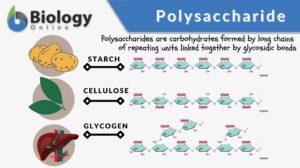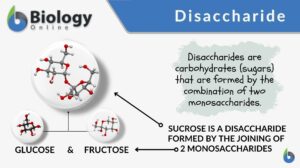Search Results for: chemiosmosis
Chemiosmosis
Chemiosmosis Definition What is chemiosmosis? In biology, chemiosmosis refers to the process of moving ions (e.g. protons)... Read More
Cellular respiration
Cellular Respiration Definition What is cellular respiration in simple terms? Cellular respiration can be defined simply as... Read More
Light-dependent reaction
Many organisms, such as green plants, convert light energy into chemical energy through the mechanism of photosynthesis. In... Read More
Plant Metabolism
Introduction Plants are responsible for incredible feats of molecular transformation. The processes are always being... Read More
Carbohydrate
Carbohydrate Definition A biomolecule refers to any molecule that is produced by living organisms. As such, most of them... Read More
Chemiosmotic coupling
Definition noun The process that couples or links the electron transport chain to ATP synthesis. Supplement Chemiosmosis is... Read More
Phosphorylation
Phosphorylation Definition We can define phosphorylation as a biochemical process in which a phosphate molecule is added to... Read More
Mitochondrial DNA – hallmark of psychological stress
We often hear that stress can be unsettling as it could make us ill when it becomes chronic and overwhelming. However, is... Read More
ATP synthase
Definition noun, plural: ATP synthases An enzyme that catalyzes the formation of ATP from the phosphorylation of ADP with... Read More
Chemiosmotic coupling hypothesis
Definition noun A theory postulated by the biochemist Peter Mitchell in 1961 to describe ATP synthesis by way of a proton... Read More
Hydrogen-transporting ATP synthase
Definition noun A membrane enzyme that allows the diffusion of protons (hydrogen ions) through its proton channel component... Read More
Monosaccharide
Monosaccharide Definition In biology and biochemistry, a monosaccharide is a simple sugar that constitutes the building... Read More
Chemiosmotic theory
Definition noun A theory postulated by the biochemist Peter Mitchell in 1961 to describe ATP synthesis by way of a proton... Read More
Chemiosmotic hypothesis
Definition noun A theory postulated by the biochemist Peter Mitchell in 1961 to describe ATP synthesis by way of a proton... Read More
Brown adipose tissue
Definition noun, plural: brown adipose tissues A type of adipose tissue found in mammals that is brownish as opposed to... Read More
Polysaccharide
Polysaccharide Definition Biology Definition: A polysaccharide is a carbohydrate formed by long chains of repeating units... Read More
Disaccharide
Carbohydrates are organic compounds comprised of carbon, hydrogen, and oxygen, usually in the ratio of 1:2:1. They are one... Read More













